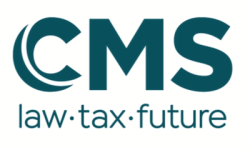Between simplification and stricter enforcement of the rules: the uncertain evolution of the ESG regulatory paradox
Topics: Sustainable Finance
Introduction: the EU as an ambitious sustainable investment hub
With the launch of the European Green Deal in 2019, the European Union (EU) set its commitment to address climate change and promote sustainability. Since then, the EU has been at the forefront of regulatory innovation, striving to create a robust framework that balances economic growth with sustainability.
In this context, sustainable investments have seen a significant increase, with a notable rise in funds labelled as sustainable and funds’ names using environmental, social and governance (ESG) or sustainability-related terms. Luxembourg, in particular, has emerged as a key hub for sustainable finance, attracting substantial interest and investment in ESG-focused funds and initiatives. At the end of 2023, Europe accounted for 85% of global sustainable funds’ net assets, reaching EUR 2.2 trillion, with 34% domiciled in Luxembourg.[1]
Although the legislative landscape encouraged sustainability awareness in the business world, the financial sector is today marked by a myriad of regulations, including the Sustainable Finance Disclosure Regulation (SFDR), the Corporate Sustainability Reporting Directive (CSRD), and the EU Taxonomy Regulation (EU Taxonomy), each with its own set of complexities and application dates. The SFDR, for instance, aims to enhance transparency in the financial markets by requiring namely investment funds managers (IFMs) to disclose how they integrate sustainability risks and opportunities into their investment processes. In parallel, the EU Taxonomy provides a classification system for environmentally sustainable economic activities and transparency requirements for large undertakings and banks, and the CSRD seeks to improve and standardise sustainability reporting and consciousness across the EU.
These intricate regulations and their usability must be measured against the growing need to boost the EU’s competitiveness and make its economy prosperous, as highlighted by the Draghi report. With EU companies facing both greater competition from abroad and lower access to overseas markets, a regulatory simplification emerges as a key to foster economic growth and innovation.
Nonetheless, this drive for simplification is juxtaposed with the EU’s unwavering commitment to its sustainability ambitions. Regulators are increasingly prioritising the supervision of sustainable investments, with the introduction of sanctions marking the beginning of a more stringent enforcement era. This dual approach highlights the paradox at the heart of the current regulatory landscape: the need to simplify regulations to enhance economic competitiveness while simultaneously ensuring strict adherence to ESG principles to uphold the EU’s sustainability goals.
As the EU navigates this complex regulatory terrain, the challenge lies in striking the right balance between simplification and stringent enforcement. This article explores the paradox between the Omnibus Directive initiative, which aims to simplify regulations (I), and the regulators’ commitment to strictly enforce existing rules to promote a sustainable economy (II), which explains the current debate and enhanced uncertainty around the ESG regulatory framework (III).
I. “Sustainable competitiveness” or the shift of the regulatory framework towards greater simplification
On 26 February 2025, the European Commission (EC) unveiled the Omnibus Package[2], a series of proposals aimed at simplifying EU rules on sustainability reporting and due diligence. This initiative is part of the EC’s broader strategy to enhance the EU’s competitiveness by reducing regulatory burdens on EU companies. The Omnibus Package introduces significant changes to the ESG regulatory framework.
Under the Omnibus Package, the scope of companies subject to CSRD is narrowed to those with over 1,000 employees and either a turnover above EUR 50 million or a balance sheet total above EUR 25 million, excluding 80% of companies currently in scope. The number of data points in the ESRS will be reduced, and a voluntary reporting standard will be introduced. Companies outside this revised scope are encouraged to report voluntarily using the updated ESRS or the new standard.

Regarding the EU Taxonomy, the Omnibus Package introduces an “opt-in” regime for smaller companies (fewer than 1,000 employees or net turnover below EUR 450 million) and simplifies reporting templates, eliminating detailed requirements and offering a combined approach for DNSH reporting. Lastly, the Corporate Sustainability Due Diligence Directive (CSDDD), effective July 2024, will reduce complexity by removing the climate change mitigation transition plan requirement and lightening the penalties regime to ensure fair application across the EU.
As part of the Omnibus Package, the European Parliament and the Council respectively approved the so-called “Stop-the-clock” directive, which must be transposed by Member States by 31 December 2025. The aim is to postpone (i) by two years the entry into application of the CSRD requirements for large companies that have not yet started reporting and (ii) by one year the transposition deadline and the first phase of the application (covering the largest companies) of the CSDDD.
In parallel to the evolutions of the Omnibus Package, the EC has been working, since December 2022, on a reform of SFDR, levering on inputs received from the market, different experts and institutions. With the recent launch of a Call for Evidence[3], the EC clarified that such reform would follow the path of the Omnibus Package, confirming the main goal of the review being to improve the effectiveness of SFDR by simplifying and streamlining the rules and alleviating complex and onerous obligations.
Bringing more flexibility to the sustainability reporting framework should however not lead to an increase of greenwashing risk, defeating the ESG ambition of the EU. In that respect, regulators are already working actively and setting the expectations on the level of transparency on sustainability in the financial sector.
“Regarding the EU Taxonomy, the Omnibus Package introduces an “opt-in” regime for smaller companies (fewer than 1,000 employees or net turnover below EUR 450 million) and simplifies reporting templates, eliminating detailed requirements and offering a combined approach for DNSH reporting.”
II. The active role of the regulator to maintain the ESG ambition and fight against greenwashing
With the sudden growth of interest in sustainable investments comes the increase of the risk of greenwashing, whereby entities make misleading claims about their sustainability practices.
As the integrity of ESG ambitions is key for the market soundness and protection of the investors, initiatives in the EU are being introduced to combat greenwashing. Regulators such as the European Securities and Markets Authority (ESMA) and National Competent Authorities (NCAs) have been at the forefront of this movement. Their efforts are aimed at ensuring that sustainability-related statements, declarations, actions, or communications by market participants clearly and fairly reflect the underlying sustainability profile of an entity, financial product, or financial service. This is crucial to protect consumers, investors, and other market participants from being misled by false or exaggerated claims.
In this context, European Supervisory Authorities (ESAs) developed a common high-level understanding of greenwashing, aiming to introduce a harmonised approach to tackle such misleading behaviours and regulators have implemented a range of supervisory actions. These include thematic reviews, on-site inspections, and the development of advanced digital tools to monitor and analyse large datasets of regulatory relevance. For instance, ESMA has launched Common Supervisory Actions to assess compliance with sustainability-related disclosures and the integration of sustainability risks in various sectors, including investment management and benchmark administration. NCAs, conducted thematic inspections on several IFMs. In this context, the Luxembourg Commission de Surveillance du Secteur Financier (CSSF) published a thematic review in June 2023 with supervision expectations and best practices. Similarly, the Danish Financial Supervisory Authority published individual statements in March 2024 to three IFMs, focusing on compliance with their Article 9 funds, stating that IFMs had significant shortcomings in processes and identifying insufficient incorporation of the requirements of SFDR into investment processes.
A notable example of stricter enforcement is the sanction imposed by the CSSF in October 2024 on a Luxembourg IFM for non-compliance with professional obligations related to internal governance and sustainability disclosures. The EUR 56,500 fine followed a thematic on-site inspection focusing on ESG aspects, during which the CSSF identified persistent breaches in the internal governance framework of the IFM and non-compliance with the investment strategy described in the pre-contractual disclosures.
Moreover, regulators have been proactive in issuing guidance and statements to clarify expectations and promote convergence in supervisory practices. For example, ESMA’s statement on sustainability disclosures in prospectuses provides guidance on the expected level of disclosure for ‘use of proceeds’ bonds and sustainability-linked bonds. In addition, ESMA published the long-awaited guidelines on funds’ name using ESG- or sustainability-related terms, conditioning the use of certain terms to the specific content of the fund’s portfolio.
The rise of inspections and enforcement actions demonstrates the commitment of regulators to uphold the integrity of ESG disclosures and to take decisive action against greenwashing. Such commitment is not expected to be lowered with a simplification of the sustainability reporting rules.
III. Conclusion: the debated future of the sustainable finance regulatory framework
The implementation of the “Stop-the-clock” directive, along with the anticipated revisions of the SFDR and changes brought by the Omnibus Package, introduces a phase of regulatory uncertainty for sustainable investments. Nevertheless, these changes are expected to simplify the current regulatory framework, easing the transparency obligations for market participants and facilitating their compliance with sustainability reporting mandates.
Despite the drive towards simplification, there is an increased emphasis on ensuring the proper implementation of these regulations. The active role of regulators in enforcing ESG rules and combating greenwashing is essential to maintaining the credibility and ambition of sustainable finance. Through enhanced supervisory actions, clear guidance, and decisive enforcement, regulators are working to ensure that market participants provide accurate and transparent sustainability-related information.
In this context, scholars and institutions remind the importance of ESG considerations in the financial sector by pointing out the risk of lowering the data points and reducing the scope of companies expecting to report on sustainability matters. Amongst others, the European Central Bank has issued a strong warning[4] regarding the Omnibus Package, expressing concerns that narrowing the scope of companies required to comply with the CSRD could jeopardize financial stability and hinder progress towards the EU’s climate objectives. In addition, the reduction of comparable data across the financial sector could also delay the integration of climate-related risks into corporate governance.
“The implementation of the “Stop-the-clock” directive, along with the anticipated revisions of the SFDR and changes brought by the Omnibus Package, introduces a phase of regulatory uncertainty for sustainable investments. Nevertheless, these changes are expected to simplify the current regulatory framework, easing the transparency obligations for market participants and facilitating their compliance with sustainability reporting mandates.”
As the EU navigates the complex challenge of balancing shifting political and economic priorities, efforts to combat greenwashing and promote transparency in sustainability claims will remain a key focus. Even as regulatory frameworks are simplified to reduce administrative burdens, regulators remain committed to upholding the EU’s sustainability objectives by fostering a more supportive environment for sustainable finance while safeguarding the interests of all stakeholders.
[1] ALFI, European Sustainable Investment Funds Study 2024.
[2] Commission simplifies rules on sustainability and EU investments
Authors

Julie Pelcé
Senior Associate, ESG Specialist
CMS Luxembourg

Julien Robert
Senior Associate, Knowledge Lawyer
CMS Luxembourg
Search posts by topic
Advisory (7)
Alternative Investment (24)
Alternative investments (3)
AML (1)
Art (1)
Asset Management (27)
Banking (16)
Capital Markets (1)
Compliance (1)
Crypto-assets (3)
Digital Assets (3)
Digital banking (6)
Diversity (7)
EU (6)
Family Businesses (4)
Family Offices (2)
Fintech (10)
Fund distribution (22)
Governance (8)
HR (9)
ICT (1)
Independent Director (5)
Insurance (2)
Internationalization (1)
LATAM (9)
Legal (10)
Private Equity (4)
Regulation (1)
Reinsurance (2)
RRHH (9)
Sustainable Finance (23)
Tax (15)
Technology (6)
Transfer Pricing (2)
Trends (18)
Unit-linked life insurance (6)
Wealth Management (12)


